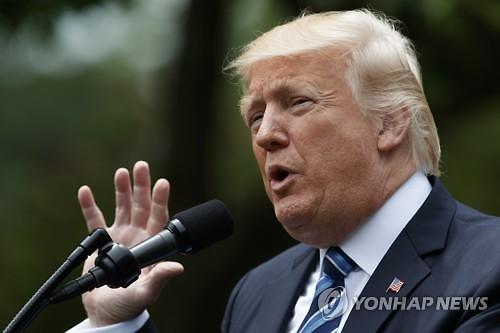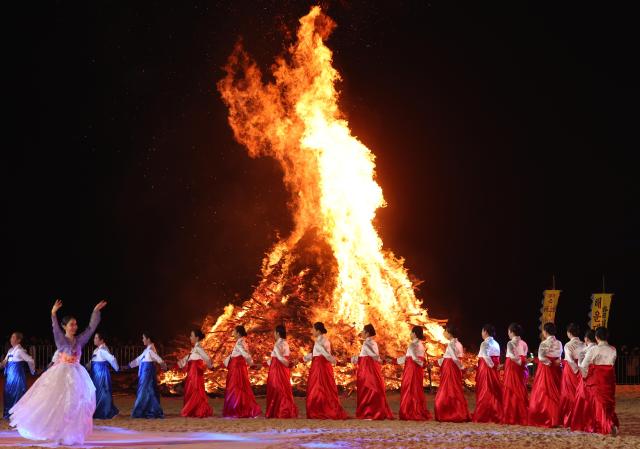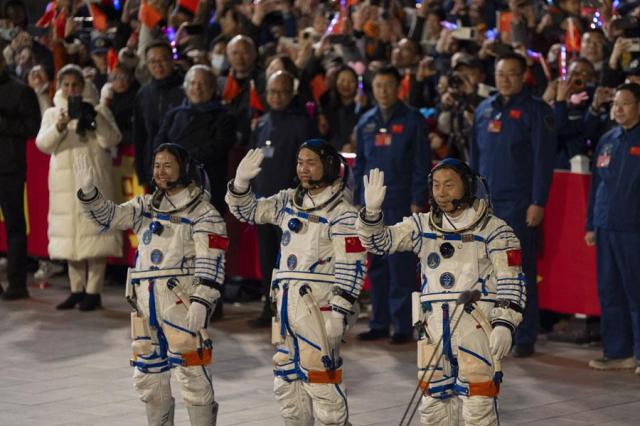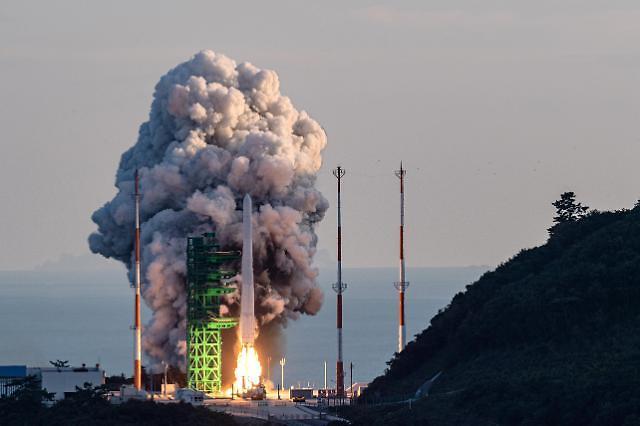
[AP/Yonhap News Photo]
A series of thorny issues will test the Korea-US alliance under the leadership of South Korea's new President Moon Jae-in and US President Donald Trump, but the two leaders, despite their seeming differences on North Korea and other issues, are expected to keep the strong ties largely intact, US experts said.
The experts also said it's very important for Moon to hold an early meeting with Trump.
"There are clearly many concerns on both sides about the future of the US-ROK relationship under the combined leadership of Mr. Moon Jae-in and President Donald Trump. Those concerns center around both substance and style, with echoes of the Roh Moo-hyun-George W. Bush difficult relations very much in people's minds," Alan Romberg, a distinguished fellow at the Stimson Center, told Yonhap News Agency.
He was referring to the often-tense relations between the two countries when late former President Roh and former US President George W. Bush were in office in the early 2000s. Moon, a longtime friend of Roh, served as his presidential chief of staff.
Moon's election means that liberals have retaken power after nearly a decade of conservative rule. Liberals in South Korea are known for espousing a softer approach to North Korea and a foreign policy more independent of the US These could be at odds with Washington.'
Potentially contentious issues facing the two countries will mainly be about how to deal with North Korea; how to share the cost of joint defense against North Korea, including the deployment of the US THAAD missile defense system; and the free trade agreement, experts said.
"Will President Moon adopt a soft attitude toward the North that will let Kim Jong-un 'off the hook' with regard to denuclearization? ... Will President Trump go beyond simply calling for harsher sanctions in the event of an ICBM launch or another nuclear test and ratchet up military pressure that will trigger conflict?" Romberg said.
"Even though THAAD is operational, will Moon suspend its operation and possibly kill the program in order to ease pressure from China, thereby weakening defense against North Korea? Will the US insist that, whether the ROK directly pays for THAAD or not, Seoul must pick up a substantially greater share of the costs of US deployments in Korea?" he said.
"Along with issues related to the future of the KORUS FTA, these are extremely consequential matters that Moon and Trump will have to manage well if the alliance is to remain vital and effective," the expert said.
Trump has also shown that despite his "outbursts" complicating the situation, he is quite capable of reversing course when he is persuaded it's in his or the country's interest to do so, and indeed Trump's record so far is one of backing off of positions that go too far and settling for policies that make more sense, the expert said.
"A good first meeting between Moon and Trump could do much to ensure continuing close coordination and collaboration in the future. So for now, both sides need to aim to produce a successful US-ROK summit early on, paying attention both to substance but also to arrangements for the meeting that will facilitate their getting to know and appreciate one another as colleagues, partners and friends over the crucial period ahead," he said.
Robert Manning, a senior fellow at the Atlantic Council, also said the alliance will likely remain firm even though there could be some tensions over contentious issues.
"I think the US-ROK alliance is in good shape. Unless events create a difficult situation, such as instability in the North that could lead to differences, I suspect the US-ROK alliance will not be significantly altered or challenged by a Moon administration," he said.
He said that tensions could break out when the two countries negotiate a new agreement on how to share the cost of stationing 28,500 American troops in South Korea as Trump is sure to demand the ally pay its share.
Also troublesome could be Moon's proposal to reopen the now-shuttered joint industrial complex in the North Korean city of Kaesong or the suspended tourism program to the North's scenic Mount Kumgang because such moves will undermine the US campaign to put more pressure on Pyongyang, Manning said.
"However, if Moon linked Kaesong and Mt. Kumgang tourism to a North Korea moratorium on missile and nuclear weapons testing and a willingness to put its nukes back on the table to restart six-party diplomacy, that might be more arguable," he said.
"If Moon tries to undo the deal on THAAD, that would cause problems. However, if the US tries to change the deal, the basis on which it is deployed, and demand that the ROK pay for deployment, beyond the land and infrastructure, Moon would have a good excuse to cancel it, ask the National Assembly to pass legislation to that effect," Manning said.
"But the ROK needs more missile defense to deal with North Korea, not less. I'm concerned about Trump's remarks because alliances are based on trust, and the word of the US must mean something," he said, referring to Trump's recent demand that Seoul should pay for THAAD.
(Yonhap)
Copyright ⓒ Aju Press All rights reserved.





View more comments